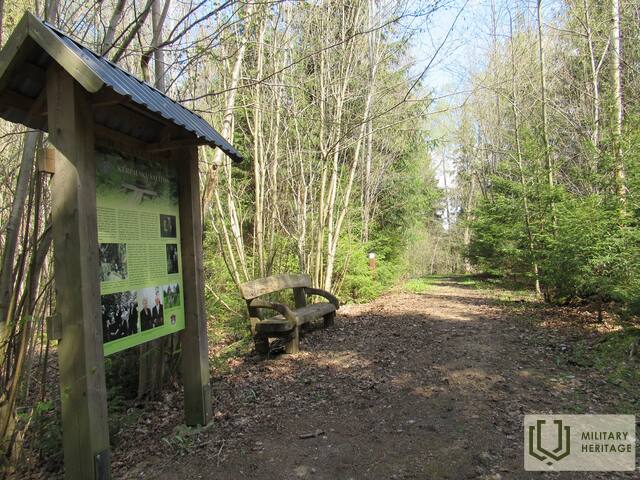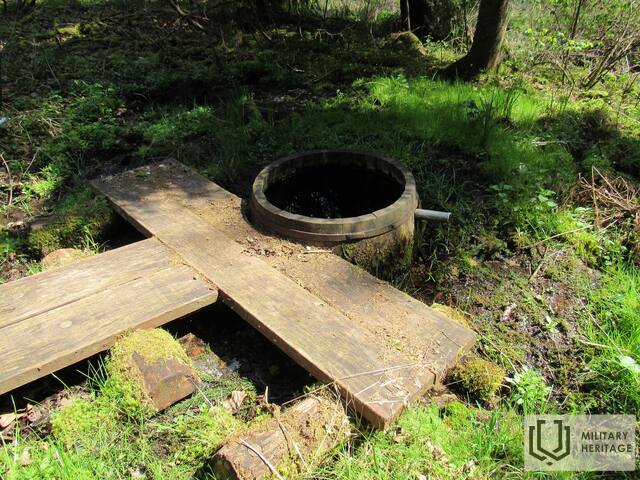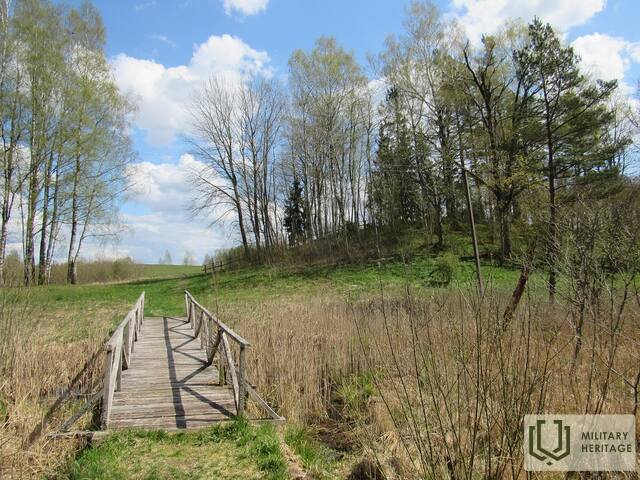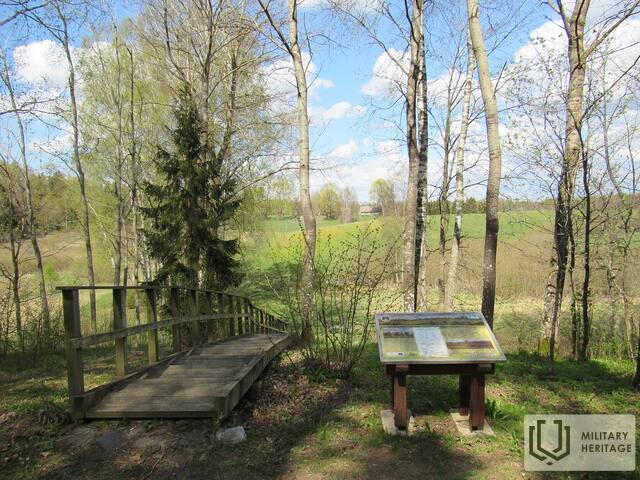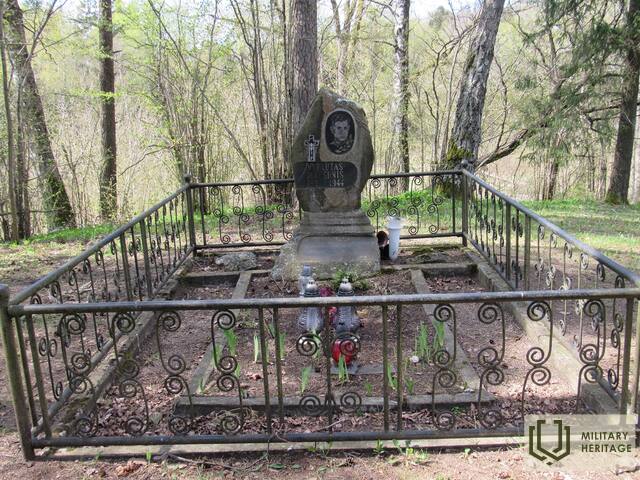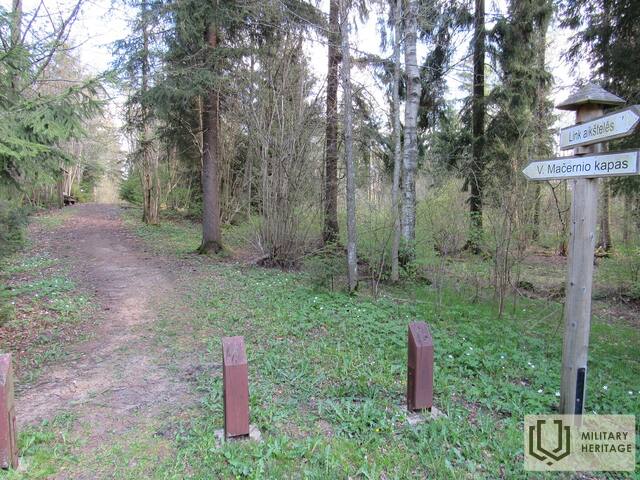Vytautas Mačernis Birthplace Trail Memorial site

In the village of Šarnelė, Plungė district, in the birthplace of the Lithuanian poet Vytautas Mačernis, a path to the poet's birthplace has been established. Walking along this 545 m long path, you will reach the poet's grave. The poet died on October 7, 1944, during the Battle of Seda, when he was accidentally hit in the head by a fragment of an artillery shell. After his death, the poet's relatives returned the deceased back to Šarnelė to be buried in his homeland.
While walking along the V. Mačernis hiking trail, don't miss the nearby Kerpauskas spring and information stand. This spring commemorates an important historical period - the genocide of the Jewish people during World War II. The Kerpauskas spring is located by the path leading from the parking lot to the poet's grave. During World War II, the family of Juozas and Adolfina Kerpauskas hid Jews in underground bunkers installed at the foot of a small hill near the spring and in the homestead below. For three and a half years, the family took care of several Jewish families - 16 people in total - and protected them from destruction. During the Soviet era, Adolfina and Juozas Kerpauskas and their children Bronė and Tomas were deported to Siberia. Juozas Kerpauskas in 1992 and Adolfina Kerpauskienė in 2009 were awarded the Salvation Cross.
Used sources and references:
Related timeline
Related stories
The poet's last journey
On October 7, 1944, the same day as the Battle of Seda, the young poet Vytautas Mačernis was tragically killed while trying to escape to the West.
The Battle of Seda: A Story of Flight and Death
The 1944 battles near Seda experienced not only heroic moments, but also episodes of panicked running, when soldiers, seeing the impending threat of defeat, tried to save their lives.
The exploits of the villagers of Šarnelė
During World War II, two families from the village of Šarnelė – the Striaupiai and the Kerpauskas – despite mortal danger, saved the lives of Jews. The Striaupiai family saved as many as 26 people, including nine families, and a hiding place was set up in the forest of the Kerpauskas homestead for the family of a Jewish furrier from Alsėdžiai.




